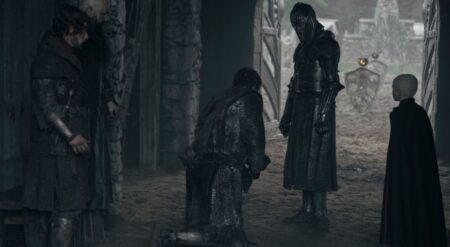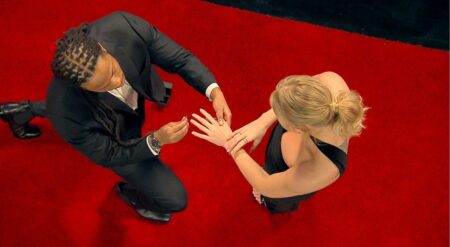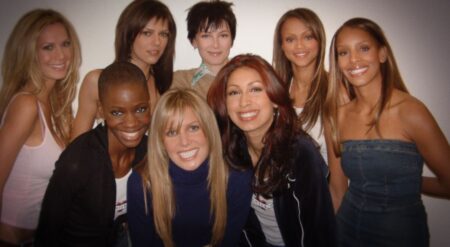Waffles and Mochi is a children’s show streaming on Netflix produced by Michelle Obama and Higher Grounds Productions. Its ten, 25-minute episodes are educational and enjoyable for all ages as its ritual muppet stars discover new foods and the ways people eat them around the world.
Michelle Obama’s Let’s Move campaign, which began in 2010, received a lot of criticism for how it oversimplified and potentially even misguided kids about what constitutes healthy eating. It overemphasizes the role of exercise in curbing weight gain and combating obesity and pitches certain foods as inherently healthy or unhealthy.
Foremost, it made dramatic changes to school lunch menus, some of which were certainly positive. It ensured more of certain nutritionally dense foods but also placed foods like whole-grain processed wheat products on a pedestal despite their largely cosmetic and marginal benefits to overall health.
Of course, the initiative put childhood obesity in the national spotlight in a crucial way and had plenty of positive attributes as well. Still, when I learned Michelle Obama was producing and starring in a new kids’ show about food, I was instantly hopeful that the show would attempt to remedy some of what I’ve bemoaned in the past and potentially be something I can incorporate into the classrooms I work with.
Waffles and Mochi doesn’t discuss health or nutrition, for better and worse.
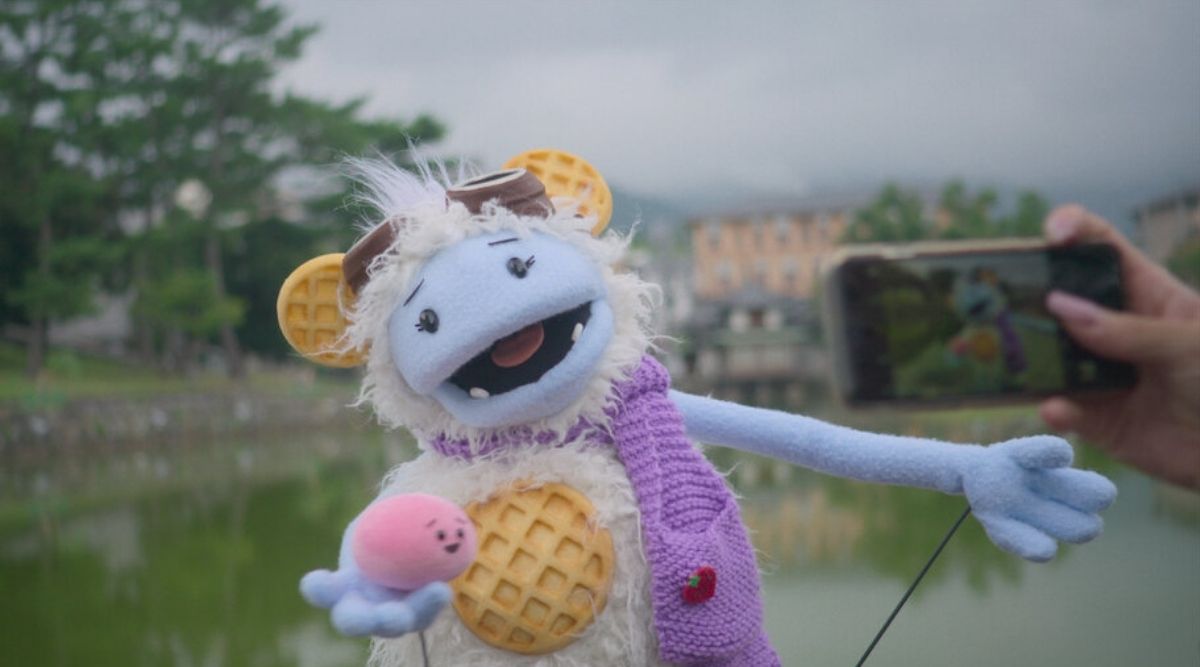
Overall, Waffles and Mochi somewhat stays away from some of the deeper issues mentioned above. Which is probably smart. The show isn’t really about what is or isn’t healthy or nutrition at all. This is ultimately for the better, especially for the target demographic and given what the show focuses on instead.
What Waffles and Mochi really is about is how different people around the world use and enjoy different foods. The whole premise is adorable and cheeky at once. Waffles and Mochi are best friends who come from a land of frozen foods, but one day, they hitched a ride on a truck to Mrs. O’s grocery store and discovered a beautiful new world of fresh foods and gardens. Also, they instantly became cogs in a capitalist machine, but more on that later.
The show utilizes these gorgeous diorama sets to show the storefront and the city around it while blending practical and CG effects beautifully. I love the Waffles puppet; it’s so silly as a little creature with big waffles for ears and on her stomach, but it’s also an extremely expressive puppet with a lot of facial manipulation and superb voice acting by Michelle Zamora. And Mochi, who is literally just a ball that meeps a lot, has a CGI face, but everyone that interacts with them makes Mochi look like just the most adorable and cuddliest little buddy. I really want to get a Mochi to squeeze while I’m stressed at work.
As Waffles and Mochi find themselves in some sort of conundrum about a different type of food each episode, they hop into Magicart, the magical shopping cart that zips them around the world (and beyond) to learn about the food and some deeper lesson perfect for a show about food and food cultures. For example, in the episode about salt, the two best friends hit every corner of the globe as they learn that salt requires moderation to make things taste just right.
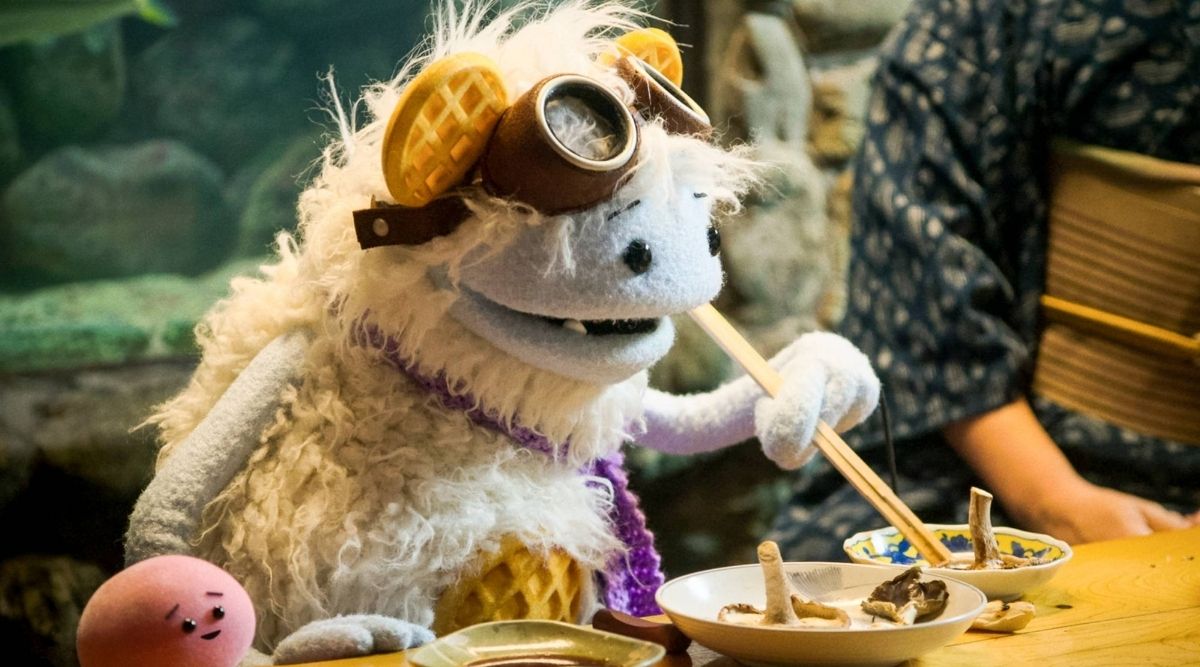
If you put too much on your cookies, they’ll be inedible. But too little won’t bring out the sweetness of the chocolate. And ultimately, this lesson in moderation is a perfect, subtle little bit of the kind of antidote to Let’s Move’s missteps that I was looking for.
Where I absolutely cannot help but complain about the show is in its primary plot vehicle. Waffles and Mochi become employees at Michelle Obama’s grocery store basically at her assistance in an early moment that just screams “you must work to be valuable here.” Perhaps it’s the irony of her participation in a grand neoliberal political regime that sours me to this concept even more harshly, but there’s simply no legitimate reason the show needed to have an explicitly capitalist bend to it.
Obama could have been the proprietor of a community garden or even a co-operatively run nonprofit grocery store that had an explicitly social benefit to its community. Literally, any other plot vehicle that wasn’t tied to and implying that our young friends must work to be considered valuable and be allowed to stay in this new home would have worked just as well.
Fortunately, the show doesn’t really focus on the exchange of money for goods or the labor of working in a grocery store, so there’s little room for it to make any blunders in that regard. And the show does show the hard work and challenging conditions of farm work in many parts of the world in a way that good parents or educators can easily use to illustrate the importance of respecting the workers and land essential to producing the food we enjoy. In fact, Waffles and Mochi’s journies across the world to experience food from the perspective of other cultures is the best part of the show.
Waffles and Mochi is praiseworthy kids’ content.
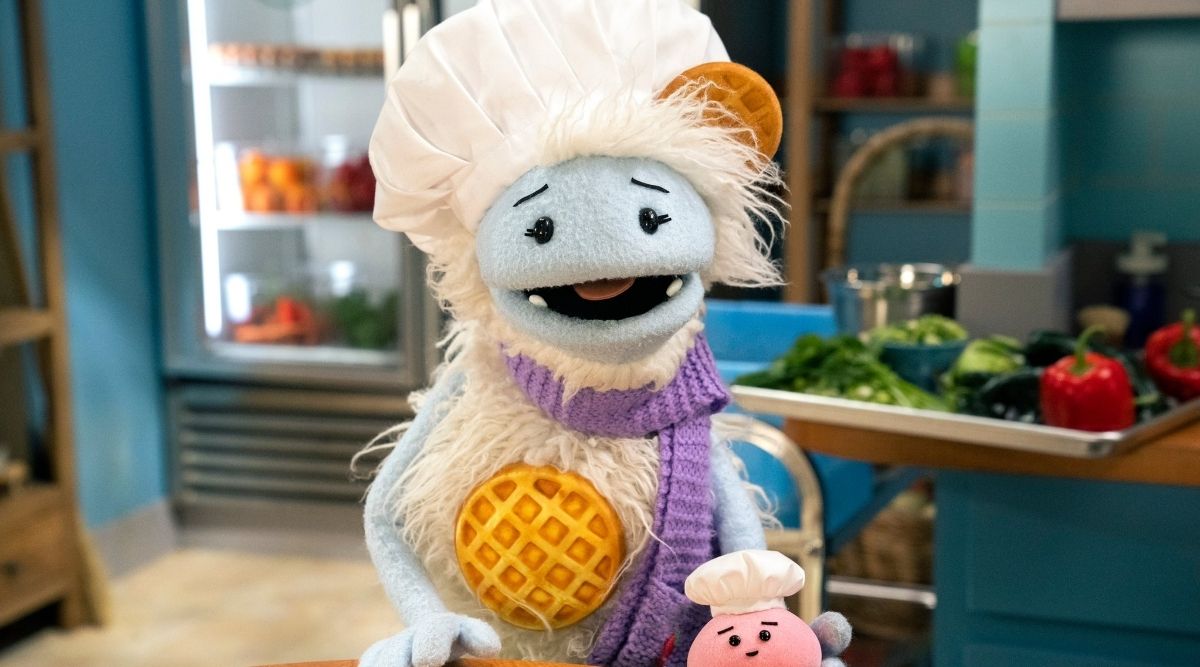
One moment absolutely must be praised in this show that I don’t think I’ve ever seen addressed so directly and well on any other food show or any age group. In the episode about rice, Waffles and Mochi visit culinary historian Michael Twilly who gives them a very real and very important lesson that rice is grown in the United States, specifically because people kidnapped and enslaved Michael’s ancestors in Sierra Leone to grow it here.
It’s explained perfectly and in straightforward words, and I hope that future seasons of the show, and food educators in general, take a lesson from this moment and continue to teach about the injustices and atrocities that created our modern foodways around the globe.
I also love when the show intersperses kids from around the world speaking in their own languages about the food the episode is focused on. I do wish you could hear them speak their languages more and not have instantaneous voice over, but I adore the fact that Waffles knows a few words in the languages of the chefs and farmers she meets, asks what words mean when she doesn’t know, and then uses them with an appropriate accent.
The way she constantly makes adult references using bigger words in perfect context so that kids can learn what they mean, while also giving me a strong chuckle, was excellent. Rather than being an annoying character who constantly asks the same questions repeatedly, the writers trust that kids are smart, because they are, and gave Waffles this great, deadpan, matter-of-fact attitude that makes her both super likable and very funny.
Waffles and Mochi is not a perfect response to the inadvertent harms of the Obama Administration’s food and nutrition policies, but it is an excellent kids’ show about food that adults can love too. In its own subtle ways, it does impart valuable lessons that somewhat remedy the ways the Let’s Move campaign taught kids about food, but at its heart, it’s a unique show about foods and how people around the world enjoy them. And as somebody who works in food and nutrition education with youth, it’s a good and fun show for kids and adults alike.
Waffles + Mochi is streaming now on Netflix.
Waffles + Mochi
-
Rating - 8/108/10
TL;DR
Waffles + Mochi is not a perfect response to the inadvertent harms of the Obama Administration’s food and nutrition policies, but it is an excellent kids’ show about food that adults can love too.





